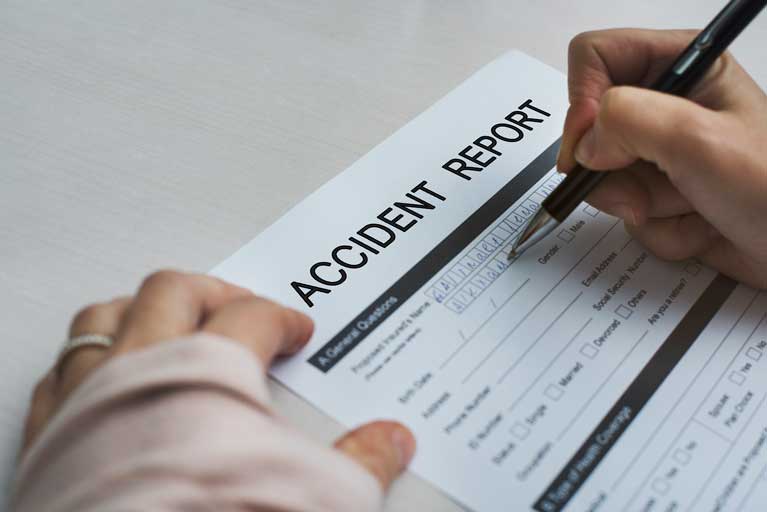Car accidents are a leading cause of personal injury claims in New York, with thousands of people injured on the roads every year. Whether it is a minor fender-bender or a major collision, the injuries sustained in these accidents can vary widely in severity, from whiplash to life-altering trauma like paralysis. These injuries do not just impact your health; they also play a significant role in the outcome of a personal injury claim.
Why is understanding your injuries important after a car accident? The type of injury you sustain can determine the amount of compensation you are entitled to. Knowing what kind of injuries are typical in car accidents and how they affect your claim can help you prepare for the legal process.
Whiplash and Soft Tissue Injuries
Whiplash is one of the most common injuries in car accidents, especially rear-end collisions. When your head is jerked back and forth due to the sudden impact, it can cause severe strain on the muscles and ligaments in your neck. The tricky part about whiplash is that symptoms do not always appear immediately. You might feel fine immediately after the crash, only to experience neck pain, headaches, or stiffness days later. If untreated, whiplash can develop into chronic pain or mobility issues, which could seriously affect your quality of life.
In addition to whiplash, a car accident can lead to other soft tissue injuries like sprains, strains, and muscle tears. These injuries are often less visible than a broken bone, but they can still cause long-term discomfort and restricted movement. For instance, a torn ligament might not heal properly without medical intervention, leading to lasting pain. Although soft tissue injuries may be harder to detect, they are still compensable in a personal injury claim. Therefore, you should not underestimate their impact, as they can still qualify you for significant compensation.
Traumatic Brain Injuries (TBI)
Traumatic brain injuries (TBI) are some of the most serious consequences of car accidents. These injuries can range from concussions to severe brain damage, with symptoms that include memory loss, chronic headaches, and mood swings. Sometimes, TBI symptoms do not appear until days or weeks after the accident, making it essential to seek medical attention even if you do not feel injured right away. A mild concussion might lead to lingering issues, while more serious brain injuries can permanently alter cognitive functions and emotional regulation.
The long-term effects of a traumatic brain injury often result in a substantial increase in the value of a personal injury claim. Medical treatment for a TBI can be extensive, including surgeries, rehabilitation, and ongoing care. Additionally, a brain injury can significantly reduce a victim’s ability to work, adding lost wages and loss of future earning capacity to the compensation equation.
Spinal Cord Injuries and Paralysis
Spinal cord injuries are among the most devastating consequences of a car accident. Depending on the severity of the damage, a spinal cord injury can result in partial or total paralysis, leaving victims unable to walk or care for themselves. Beyond the physical limitations, these injuries also cause emotional and financial hardships, as victims often need long-term medical care and rehabilitation. Some may even require modifications to their homes or vehicles to accommodate their new lifestyle.
Because of the life-altering nature of a spinal cord injury, compensation in these cases tends to be higher. Victims may be entitled to damages for medical expenses, lost wages, future care, and pain and suffering. According to New York personal injury law, spinal cord injury victims can seek compensation for both economic and non-economic damages.
Broken Bones and Fractures
Broken bones are another common outcome of car accidents. From fractured ribs to broken arms and legs, these injuries can occur in almost any type of collision. Some fractures are so severe that they require surgery, pins, or plates to heal properly. Even with proper treatment, recovering from a broken bone can take months, leaving victims out of work and facing high medical bills. For example, a broken arm might seem simple to heal, but the loss of mobility could significantly affect your daily life and work.
In addition, the time it takes to recover from a bone fracture often leads to lost wages and mounting medical expenses. These factors are critical in determining the value of a personal injury claim. Under New York law, injured parties can seek compensation for medical expenses, lost earnings, and even future damages if the injury affects their long-term ability to work.
Internal Injuries and Organ Damage
Internal injuries, such as damage to organs or internal bleeding, are some of the most dangerous and hard-to-detect consequences of a car accident. You might not feel any pain right after the crash, but internal injuries can have life-threatening consequences if left untreated.
It is crucial to be informed and aware of these potential risks, and to seek medical attention immediately. For example, damage to the liver or kidneys can result in significant long-term health issues that require emergency medical intervention.
Internal injuries often require extensive medical care, including surgeries and hospitalization, which can add to the cost of your claim. Under New York personal injury law, victims can seek compensation for these high medical expenses, lost wages, and the long-term impact of their injuries.
Emotional and Psychological Injuries
The psychological effects of a car accident can be just as harmful as physical injuries. Many accident victims develop anxiety, depression, or post-traumatic stress disorder (PTSD) after a serious crash.
These emotional injuries can affect your ability to work, interact with others, or even function in your daily life. For example, someone with PTSD might be too scared to get behind the wheel again, severely limiting their independence and ability to run errands or commute to work.
In New York, emotional and psychological injuries are compensable in personal injury claims. Victims can seek damages for mental suffering, including the cost of therapy and the impact on their quality of life.
How Your Injuries Affect Your Personal Injury Claim
To succeed in a personal injury claim, you must prove that another party was at fault for the accident. In New York, this requires showing that the other driver was negligent, whether through speeding, texting while driving, or other reckless behaviors. Documenting your injuries with medical records, police reports, and witness statements is essential to establishing a solid case. With an experienced attorney by your side, you can focus on recovering from your injuries while they handle the legal complexities.
The severity of your injuries plays a significant role in determining how much compensation you can recover. Factors such as your medical bills, lost wages, and pain and suffering all contribute to the value of your claim. Severe injuries like traumatic brain injuries or spinal cord damage will generally lead to higher settlements due to the long-term costs involved.
Why Consult an Experienced Car Accident Lawyer in New York
When you are dealing with the aftermath of a car accident, navigating medical bills, lost wages, and ongoing pain can be overwhelming. Each injury—whether it is whiplash, a traumatic brain injury, or a broken bone—has its own set of challenges that can significantly impact your daily life and financial future.
An experienced car accident lawyer in New York can step in to handle the legal details, while you focus on your recovery. With their knowledge of New York’s personal injury laws and how your specific injury may affect your compensation, a skilled attorney can not only increase your chances of a favorable settlement but also give you peace of mind during a challenging time.

